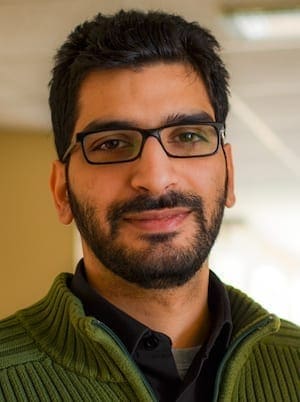The International Criminal Court (ICC) is investigating alleged crimes committed in the occupied Palestinian territories since June 2014.
Israel condemned this move. Hamas welcomed it, even though its actions will also be under ICC scrutiny. The announcement drew the ire of some Western media platforms and many U.S. politicians.
Christian are called to “learn to do good, seek justice, correct oppression” (Isaiah 1:17).
Yet justice seems elusive in the Israeli-Palestinian conflict, with more than 60 years of history and an array of vital issues.
Even if we have different theologies or belief systems stemming from our various interpretations of the Bible, no interpretation justifies the perpetration of war crimes and crimes against humanity, which the ICC is competent to judge.
We should approach this conflict from the perspective of international justice, which is a prerequisite for addressing the Israeli-Palestinian conflict.
First, we must begin with the ICC, which is the permanent international court that followed several ad hoc international tribunals.
More than ever before, governments need to endorse a strong and well-resourced ICC for at least three reasons:
â— International tribunals were the only recourse against the crimes committed in former Yugoslavia and in Rwanda, especially for crimes committed by high-ranking civilian and military officials.
â— The ICC is the sole hope for redress for many conflict victims in Africa. Nigeria is under preliminary examinations, while investigations and evidence collection are underway in the Central African Republic.
â— The ICC is one of the few international mechanisms that can possibly achieve a breakthrough to halt the lingering conflicts in Syria and in Iraq.
Dismissing the court because it is scrutinizing Israel’s actions would leave millions of victims without any recourse whatsoever and would perpetrate impunity worldwide.
Second, we need to accept that Israel is likely to have committed war crimes, as have Palestinian armed groups such as Hamas.
Violations of the laws of war by these various actors has been documented extensively by Human Rights Watch, Amnesty International, Palestinian organizations, Israeli organizations as well as media reports and U.N. agencies.
War crimes, as defined by the ICC, not only include the killing of civilians and destruction of civilian property, but also the “transfer, directly or indirectly, by the Occupying Power of parts of its own civilian population into the territory it occupies.”
All governments, including the United States, have condemned ongoing Israeli settlement of the 1967 Occupied Palestinian Territories including East Jerusalem to no avail.
Third, the “statehood” argument is a key element of the debate.
According to the ICC, “The Office (of the Prosecutor) considers that, since Palestine was granted observer State status in the United Nations by the UN General Assembly, it must be considered a ‘State’ for the purposes of accession to the Rome Statute.”
In response, Israeli Prime Minister Benjamin Netanyahu argued, “It’s absurd for the ICC to ignore international law and agreements, under which the Palestinians don’t have a State and can only get one through direct negotiations with Israel.”
Is it just to bind the right of granting statehood to the will of the one who is occupying and actively colonizing that same state?
Since the Oslo agreements, Israel has denied Palestinians the right of statehood while simultaneously and vigorously erecting Jewish settlements in the occupied territories, destroying Palestinians homes and confiscating Palestinian land and water.
An important and informative precedent on justice when the issue of statehood is at question is the accession to statehood of South West Africa/Namibia in 1966. Although Namibia was occupied, it was able to achieve statehood.
Fourth, we need authoritative court decisions that clarify what justice is in the Israeli-Palestinian conflict.
The only recent precedent of an international jurisdiction addressing this conflict was the 2004 International Court of Justice advisory opinion titled, “Legal Consequences of the Construction of a Wall in the Occupied Palestinian Territory.”
The court’s unanimous decision was that Israel’s construction of the wall and the associated regime are contrary to international law and ordered Israel to make reparation for all damage suffered by all persons affected by the wall’s construction.
Additional judicial intervention, along with enforcement of these decisions, is essential in the Palestinian-Israeli conflict.
Christians should approve or denounce acts and events in the Israeli-Palestinian conflict according to biblical standards of justice and mercy.
Supporting the ICC and its action on Israel-Palestine is a just and merciful action in this seemingly endless conflict.
Christians must not accept the discourse that favors Israeli immunity over and against justice and mercy for all Israelis, Palestinians, Syrians, Nigerians, Congolese, Sudanese and victims of every other armed conflict today.
 Wissam al-Saliby is the partnerships manager at Arab Baptist Theological Seminary in Lebanon. A longer version of this column first appeared on the IMES blog and is used with permission. He blogs at Ethiopian Suicides and Lebanonesia, and you can follow him on Twitter @lebanonesia.
Wissam al-Saliby is the partnerships manager at Arab Baptist Theological Seminary in Lebanon. A longer version of this column first appeared on the IMES blog and is used with permission. He blogs at Ethiopian Suicides and Lebanonesia, and you can follow him on Twitter @lebanonesia.
Wissam al-Saliby is a UN Geneva Advocacy Officer with the World Evangelical Alliance.

